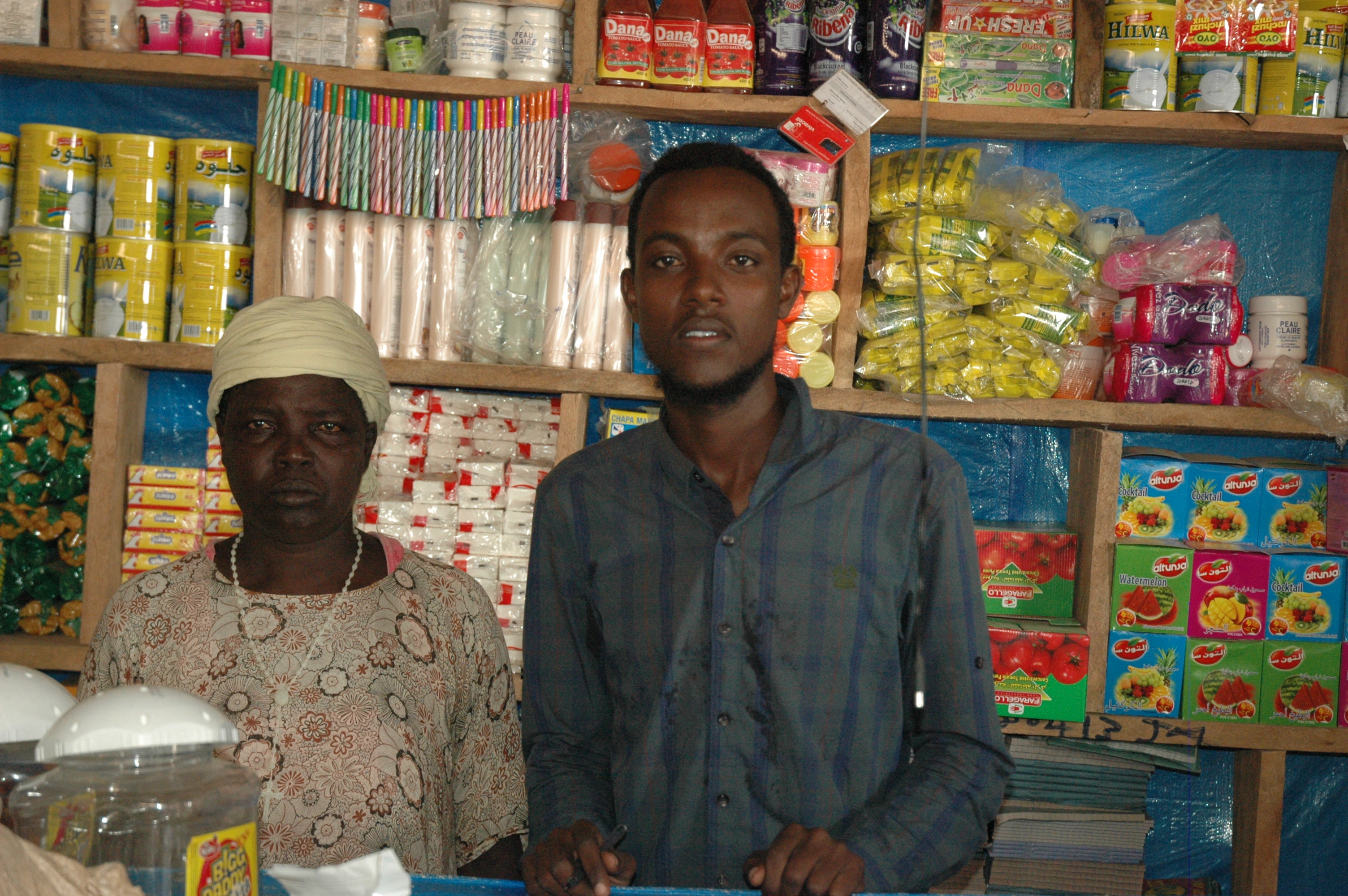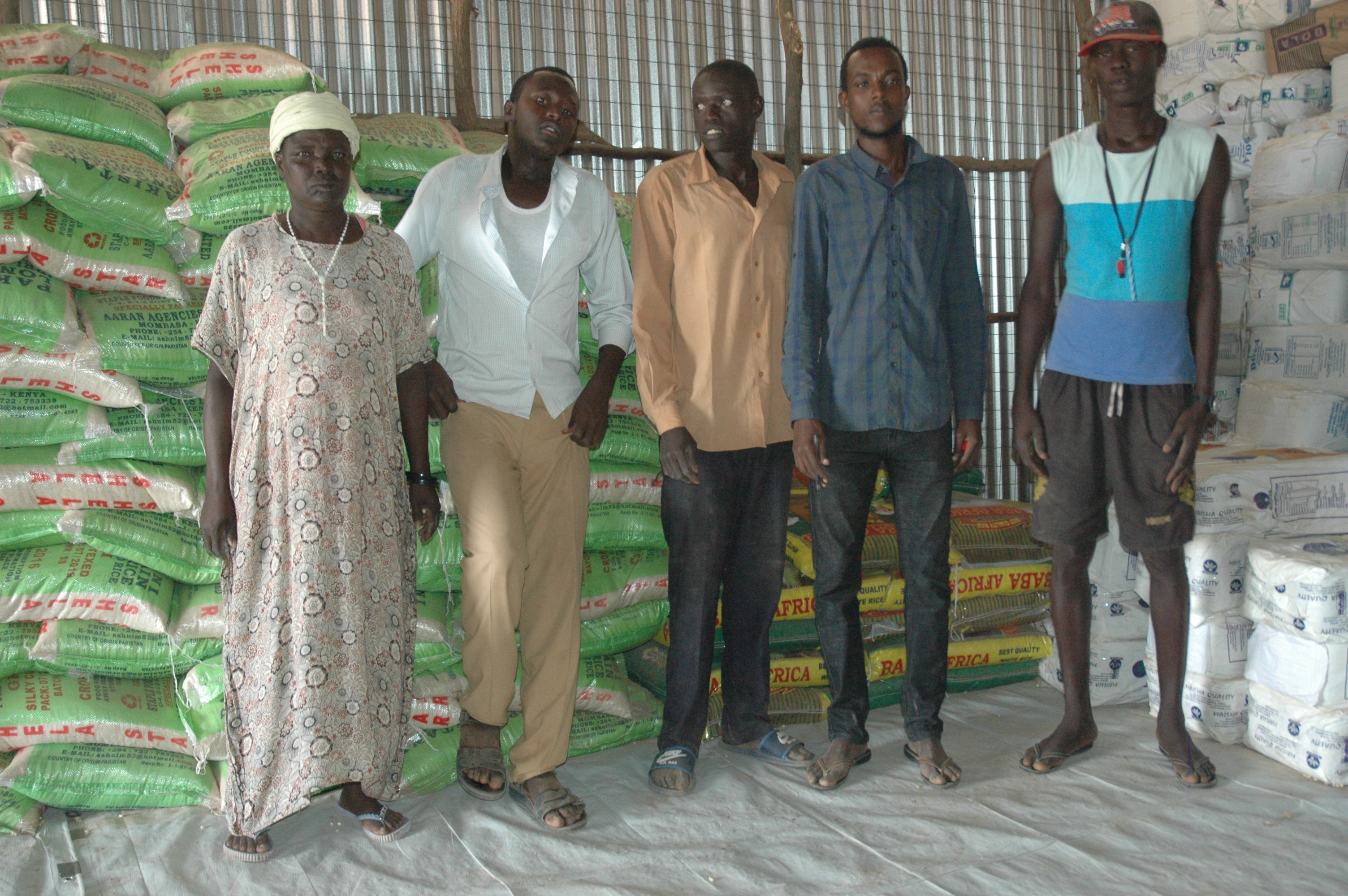By Qaabata Boru
A refugee small business owner is facing a life-threatening situation in Kalobeyei refugee settlement
Farhan Mohammed – a retail business owner in Kalobeyei – is facing life threats from people who are well known to him.
On September 10th, Farhan told the World Food Program (WFP) official in charge of the Kalobeyei market management about the nature of threats that he was facing. He said that the threats were coming from members of the host community who are rivals to him and his booming business in the area. “I was threatened because of my success in business management,” Farhan told KANERE.
Kalobeyei settlement, in Turkana County, was established under an agreement between the Kenya government and the UN Refugee Agency (UNHCR) in 2015 as a center that is designed to serve both the refugees and the host community. The WFP was designated to oversee the running and daily management of the market and allocation of marketing space, loan provision and connections to the local businesses around the rift valley province of Kenya.
The settlement land borders on Kalobeyei Township, which is located about 30 km from Kakuma refugee camp on the road from Lodwar to Lokichogio near the border with South Sudan. The area is marginalized and situated in the desert, and most of the businesses in Kalobeyei are owned by small scale local businessmen.
 (Farhan Mohamed and Felicia at their retail business shop in Kalobeyei)
(Farhan Mohamed and Felicia at their retail business shop in Kalobeyei)
In 2013, UNHCR made a proposal to create a settlement at Kalobeyei for refugees, to relieve overcrowding in old Kakuma refugee camp. In 2015 the Kenya government approved the proposal through the county government. “The purpose of allocating land to refugees is as a part of integration or sharing responsibilities,” said Turkana Governor Nanok at a meeting on refugee affairs.
The establishment of Kalobeyei settlement was intended to give rise to a common market that would serve both the refugees and host community with the aim of creating peaceful co-existence, as the insecurity between the two populations has caused loss of lives and distraction of properties in which competition for scarce resources is the major factor. “Land allocation is a big factor but we’re determined see peaceful co-existence between the refugees and local community,” claimed Governor Nanok speaking at a previous World Refugee Day event.
UNHCR sees Kalobeyei as model for integration. However, the agency has struggled to get central government on board. Legally, under the encampment policy all refugees in Kenya must live in the camps and cannot work even though some arrived three decades ago. The Refugees Bill, granting refugees the right to work and use land for business and farming, passed through its third and final stage in Parliament in June 2017 but was rejected by Kenyan president Uhuru Kenyatta in November, on the grounds that the bill was lacking public participation. Lawmakers will now revise the bill before sending it back to the president.
Lacking a legal basis for their operations, refugee business people are open to harassment. Felicia, a business co-partner with Farhan, has raised a similar complaint with both the local police and WFP but she stated that none of the agencies have raised their insecurity situation. “I was beaten in the market by local women (Turkanas) for a reason not known to me,” Felicia told KANERE.
“I believe the assaults were related to our success in business in Kalobeyei. We are fearful for our lives,” Felicia added.
 (Farhan Mohamed and his team at the leading retail business in Kalobeyei)
(Farhan Mohamed and his team at the leading retail business in Kalobeyei)
According to a refugee community leader at Kalobeyei who expressed similar budging over local business in the market, members of the business group from the host community fear competition from refugee groups even though everyone is running a set level of retail trade. “In my observation the Turkana groups fear competition, and they don’t feel OK when refugees do better than them in business,” Peter told KANERE in Kalobeyei.
“This is market competition and we are encouraging everyone to do their best, and peaceful coexistence is important,” he added
Officially, under the market management in Kalobeyei, there are restriction to wholesale trade, therefore all the business is registered under the retail pricing policy at the market level.
Farhan runs two retail shops in Kijiji (village) three in Kalobeyei settlement. In the shops are plenty of goods, mainly foodstuffs in large stocks that get rapidly sold out, needing frequent restocking through the connections of the wholesale traders in the region. “I make an average turnover of 1.5 million shillings of sales in a fraction of a month, it’s a great business for me,” Farhan told KANERE.
In his shop, Farhan is the busiest businessman throughout the day but as night falls he gets worried about his safety. In speaking with KANERE he expressed his worries. “I am in fear for my life, and I am not sure what to do with my business,” Farhan told the KANERE journalist at his shop in November.
By end November, Kalobeyei accommodated 40,000 refugees and asylum seekers mainly from South Sudan and DRC Congo. Since the settlement was established, residents have encountered insecurity, lack of water, and food deficiencies among several pressing problems.
For Farhan, despite reporting constant security threats to the Kenya police and area administration chiefs, he remains in fear of host community groups who are threatening his life and his business.
“I have no power, I will wait for the authority to intervene for my life and safety,” Farhan told KANERE.
